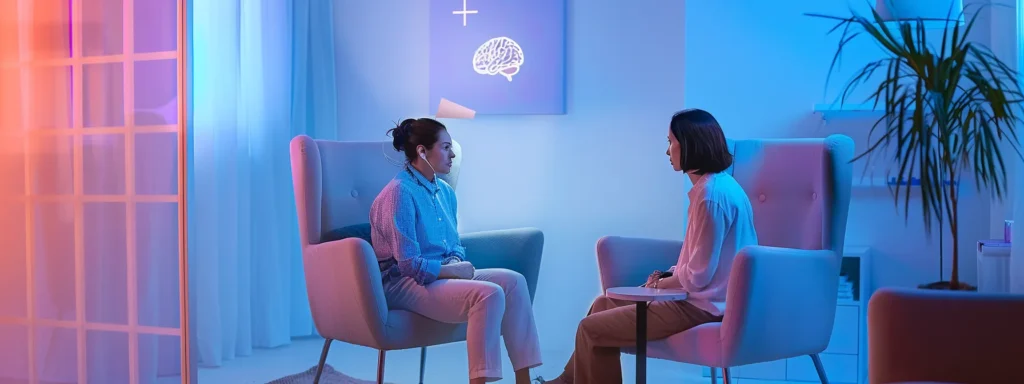Trauma Therapy Program in Concord: Supporting Students Under Academic Pressure

School years are considered one of the best times of our lives. However, a 2023 study shows that 40% of the students in the U.S. feel sadness and hopelessness, and 20% think of attempting suicide, out of which 9% nearly attempted it!
Why, you ask? Because of the enormous pressure to succeed! Between demanding schoolwork, competitive college preparation, and high family expectations, many teenagers are carrying stress that goes far beyond the usual challenges of growing up.
Concord, a small town in Massachusetts, is no exception! Students, especially teens, deal with trauma, whether from academic pressure, family conflict, bullying, loss, or other painful experiences.
In such a case, the Forrest BH Trauma Therapy Program can provide the structured support they need to cope, heal, and move forward.
Why Trauma and Academic Stress Overlap?
In Concord, people often celebrate academic achievements; however, the school environment can also put a significant amount of emotional pressure on students.
When students deal with unresolved trauma on top of that pressure, it can lead to serious problems.
Some of the common ways trauma shows up in students include:
Difficulty Concentrating in Class
Intrusive thoughts or memories can cause students to miss important information or feel disconnected from the lesson.
Sudden Drops in Grades
Even when students work hard, they can still get lower grades. This can make them feel frustrated and cause them to doubt their academic abilities.
Anxiety or Panic Attacks
Students face anxiety or panic attacks, especially before exams or school events, causing a reluctance to participate or attend important situations.
Withdrawal from Friends or Activities
Teens who once enjoyed socializing withdraw from it, resulting in feelings of loneliness and isolation from their friends.
Perfectionism
They start believing that nothing they do is ever good enough, often combined with a relentless fear of making mistakes.
Anger or Irritability
Many individuals show frustration or anger at home. This often hides deeper pain and can create tension in family relationships. As a result, it can increase feelings of isolation.
When left unaddressed, these struggles affect more than academics. They impact confidence, relationships, and a teen’s ability to enjoy life.
The Hidden Struggles of Teens in High-Pressure Environments
On the surface, many teens in Concord appear successful, getting good grades, balancing extracurricular activities, and preparing for college.
But what’s happening underneath can look very different:
- Some cope by hiding their stress and pretending everything is fine.
- Some people feel lonely, even when they are in a crowded classroom.
- A few turn to unhealthy coping methods such as substance use or risky behaviors.
Parents often feel unsure how to help. They may sense their teen is struggling, but worry about making it worse by pushing too hard. The result is silence, and silence allows trauma to deepen.
However, turning to the Forrest BH Trauma Therapy Program is a viable solution!
What a Trauma Therapy Program Offers?
Forrest Behavioral Health’s Trauma Therapy Program is designed to meet students where they are. It doesn’t expect students to pause their lives or stop striving for success. Instead, it provides tools to manage trauma while maintaining a sense of normalcy.
The program includes:
Individual Therapy
This includes private sessions where teens can process difficult experiences in a safe and supportive environment.
Family Therapy
We also guide parents and siblings in improving communication, reducing conflict, and supporting healing at home.
Evidence-Based Treatments
Our Trauma Therapy Program uses approaches, like CBT and EMDR, to address both surface-level symptoms and underlying trauma.
Skill-Building
Our therapists help the students learn practical strategies for managing stress, regulating emotions, and staying focused in school.
Peer Support
Teens can join group therapy to meet others who face similar challenges. They will see that they are not alone.
This balance ensures that the Trauma Therapy Program helps teens stay engaged in their daily lives while also building their strength to handle challenges.
Balancing Healing With Real Life
Teenagers in Concord often have busy schedules filled with advanced classes, sports, and activities. Asking them to take a break from everything is not realistic. That’s why the Trauma Therapy Program focuses on integration: connecting healing with a teen’s daily life to help their growth without interrupting it.
Breaking the Silence Around Trauma
One of the biggest challenges for families is stigma. In a community that values success, seeking therapy can be seen as a sign of weakness or failure. However, asking for help is a sign of strength and wise thinking.
Key reminders for Concord families:
- Trauma is not a personal failing.
- Academic success and emotional health can go side by side.
- Professional therapy is confidential, supportive, and designed to protect dignity.
- Early intervention prevents deeper struggles later in life.
Normalizing therapy allows teenagers to see it as another form of self-care, no different from tutoring for academics or coaching in sports.
A Path Forward for Concord Families
No parent wants to see their child overwhelmed by trauma, and no teen should feel trapped by pain they can’t name. With the right help, healing can be both possible and lasting!
Forrest Behavioral Health’s Trauma Therapy Program offers Concord adolescents a safe, confidential space to:
- Process past experiences
- Build coping skills
- Strengthen family support systems
- Regain confidence for both school and daily life
By addressing trauma early, the program helps ensure young people can move forward without being weighed down by silent struggles.
Final Thoughts
Adolescence is already a demanding stage of life. When trauma and academic pressure collide, the challenges can feel impossible. But support is available, and it works!
Forrest Behavioral Health helps teens in Concord thrive. They offer therapy that fits into their lives and supports long-term success.
So, if your teenager is showing signs of stress or unresolved trauma, call us at (781) 570-5781 or send an email and change their future for the better!




